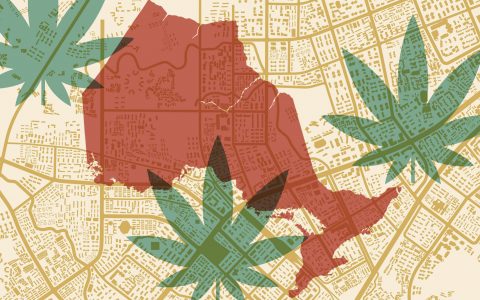TORONTO – Ontario will not have all of its 25 cannabis retail shops open next week as the government had intended, as several store license holders are still wading through a lengthy approvals process.
While stores that fail to open on Monday could face escalating penalties for delays, the government said it would not rush the vetting process.
“We’ll wait and see on April 1 how many open,” Finance Minister Vic Fedeli said Monday. “There was prohibition for 100 years and we’re going to be in this business for 100 years. We will not rush into anything.”
Recreational cannabis can currently only be purchased legally in Ontario through a government-run website.
The Progressive Conservative government had initially said there would be no cap on the number of retail cannabis stores after legalization. But in December, citing national supply issues, it said it was initially issuing licenses for just 25 stores so operators could open for business on April 1.
Fedeli said he did not have extensive knowledge of the day-to-day approvals system being handled by the Alcohol and Gaming Commission of Ontario, but stressed that safety had to be the top priority.
“I’d rather make sure that we get it right rather than rush in,” he said. “The AGCO is working to make sure that the 25 that were approved get their stores open in a timely manner.”
Earlier this year, the government held a lottery to determine the 25 entities that could apply to open the initial stores.
Lottery winners then had to turn in their application along with a $6,000 non-refundable fee and a $50,000 letter of credit. They also had to agree to a strict timeline to open their shops. The AGCO has the power to draw down the letter of credit in stages in case of delays.
Failing to open a store by April 1 can result in a $12,500 draw down, while not opening by the end of April means applicants risk losing their $50,000 letter of credit.
The AGCO said many applicants are currently at different stages of the approvals process.
Three have not yet advanced to the point where they can begin a 15-day public consultation for store locations. One store will wrap up its public consultation Wednesday and another will finish on Tuesday next week.
Ten applicants have been granted their retail licenses and another 10 have completed their consultation periods.
“It is difficult to predict how many stores will be ready to open right as of April 1,” AGCO spokesman Ray Kahnert said in a statement. “The AGCO will only license operators and authorize stores once we are satisfied they have met all legal and regulatory requirements.”
Heather Conlon, the operator of the Nova Cannabis shop set to open in Toronto, said she’s optimistic she’ll get all of approvals required in time.
She acknowledged that after the initial euphoria of winning the lottery she felt anxious about the deadlines.
“The first week I was overwhelmed,” she said. “But as the weeks have gone by actually it’s come together quite nicely.”
Conlon said she initially faced challenges lining up financing because of uncertainty about the industry amongst some in the banking community. She said she also needed to partner with Alberta-based Alcanna, which operates liquor and cannabis shops in that province, to help her ready her store and staff it in a short period.
“It was just a race,” she said. “There are a lot of people who are unsure. But there are also people who are excited and want to be involved.”
NDP deputy leader Sara Singh said the government has “botched” the retail store launch by not giving lottery winners enough time to open their stores.
“What this is actually doing is pushing people to the illegal market for their cannabis,” she said.
One consumer advocacy group said stores not being ready to open in time exposes weaknesses in the government’s cannabis plan.
“What this shows is that the lottery process was probably a mistake,” said David Clement of the Consumer Choice Coalition. “It would have been much better for the province to simply uncap the license process from the start so that as many well-prepared retailers as possible could open up shop.”
But Omar Yar Khan, a vice president at strategy firm Hill+Knowlton who advises cannabis sector clients, said he believed the government needed to start with the lottery system.
“They were really looking to avoid any perception of favouritism, particularly given that the number of licenses was going to be so low,” he said. “But they haven’t been able to make a dent in the black market.”
Khan said to address the illegal sales the government will need to move aggressively to open more stores when supply issues are resolved and upgrade the Ontario Cannabis Store website and delivery capabilities.





